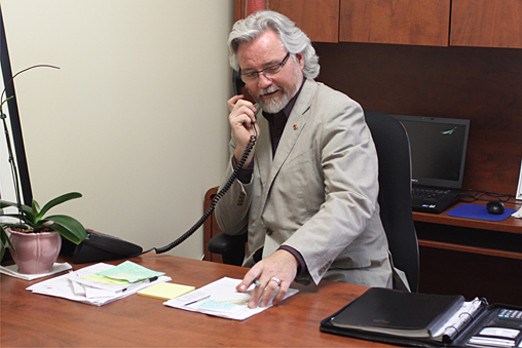Idle No More is highlighting issues that all Canadians should be worried about, says New Democratic MP John Rafferty.
The Thunder Bay-Rainy River MP said changes in Bill C-45, the Conservative government’s second omnibus bill, means less protection for the country’s lakes and rivers while downloading the cost of environmental assessments to provinces, municipalities and people.
“All Canadians should be concerned because it fundamentally changes the way we do things and the way we interact with our neighbours,” Rafferty said.
Suppose a person has property on a waterway. Upstream, their neighbour starts filling in the shoreline with soil to create more land.
Under the old Navigable Waters Protection Act, a person could call the OPP and the infilling would trigger a federal environmental review. That is no longer the case.
“Now the only thing that person can do, I mean he might be able to get the province involved, but really all he can do is say ‘if you don’t stop doing this I’m going to take you to court,” Rafferty said.
“Who’s got money to take people to court?”
On a larger scale, provinces and municipalities would be left to pick up the tab on environmental assessments.
“That money is going to come from municipal rate payers pockets,” Rafferty said.
The parliament member hopes people, provinces and cities have the sense to be responsible. The threat of a federal review used to make them, along with industry, careful when it came to water.
“I’m not saying it’s going to be some kind of open season on ruining lakes and rivers. I still have faith in Canadians that Canadians know what’s right,” he said.
Peggy Smith isn’t so sure.
“I don’t’ know that anyone would believe that any industry is going to be completely self-regulating in terms of protecting the environment. We all know in our system that the bottom line is profit and often times the environment is sacrificed for profit,” she said.
An associate professor in Lakehead University’s Natural resources Management, she teaches a class on environmental assessments. The process is relatively new. The concept of environmental responsibility wasn’t around in 1867 when the country was formed. How to protect the environment and who protects it in the face of development has only been a major discussion for the past 30 or so years Smith said.
People assume that governments have environmental interests at heart but since the Conservative government is streamlining the process while making it harder for the public to voice opposition to natural resource development.
“I think that should cause everyone some concern because we are facing massive resource development in this country and one of our main concern is that we’re going to do that sustainably,” she said.
“Those governments have a responsibility to ensure that those lands are regulated and looked after in the best interests of the Canadian population.”
There is a way to balance economic development with environmental responsibility but it’s achieved through dialogue Smith said.
“Not gut our regulations so we’re no longer considering those issues.”
